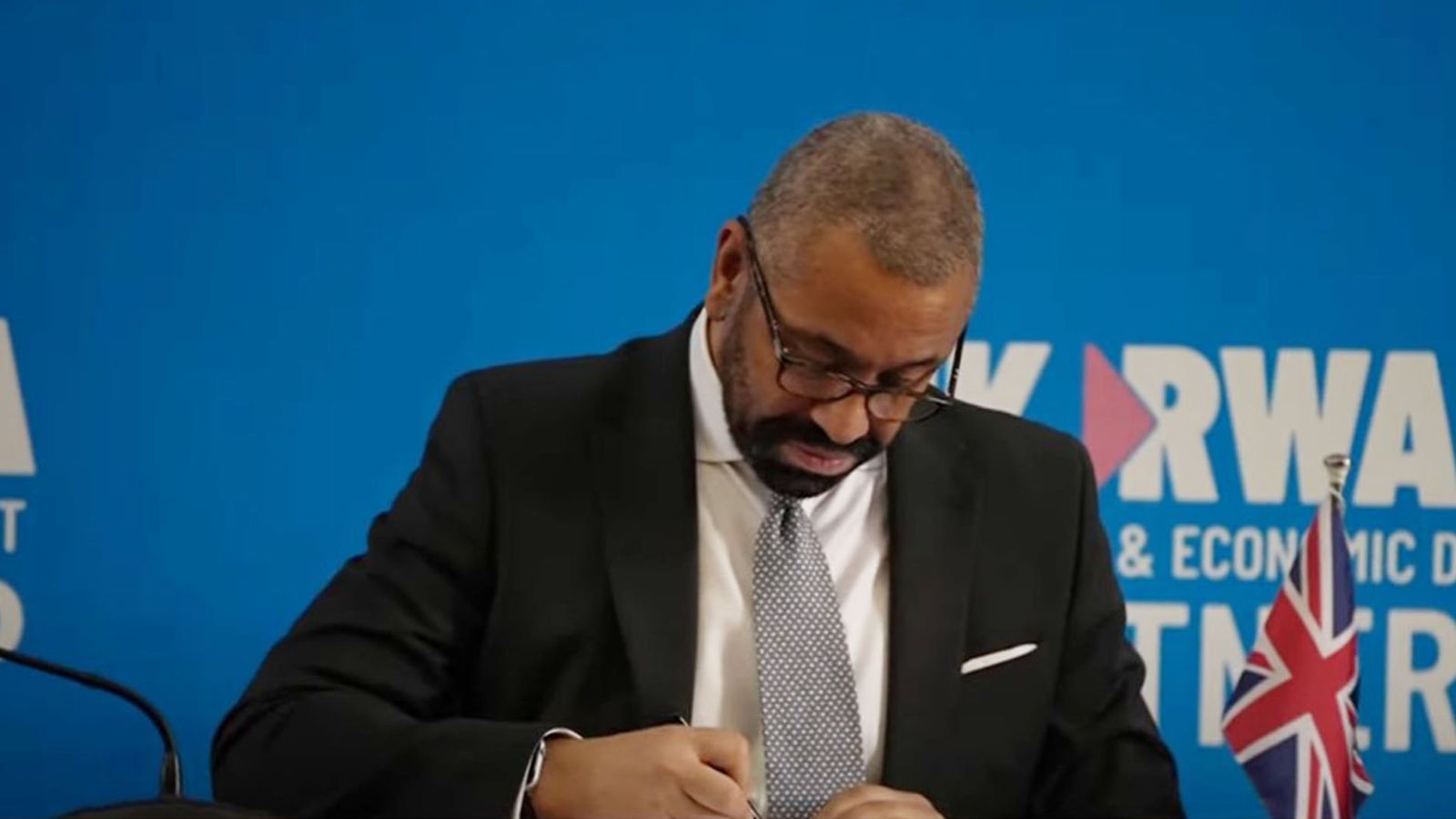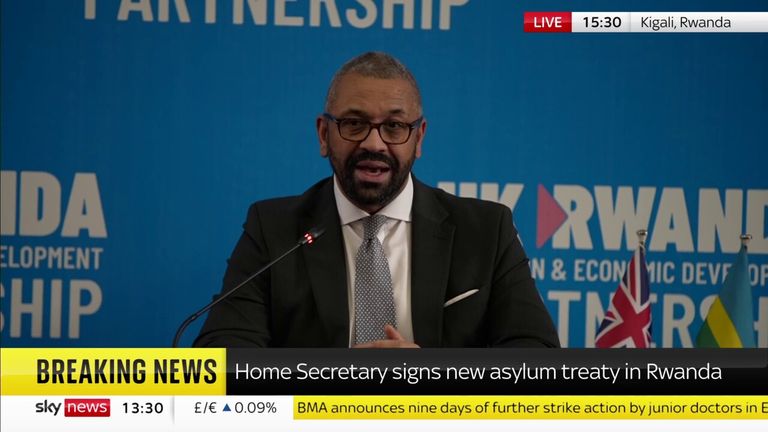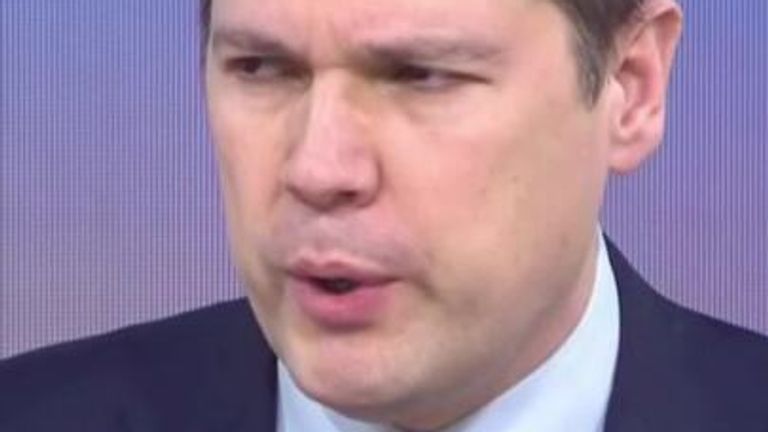Rwanda has not received any additional funding for the new treaty it has signed to revive the UK government’s asylum plan, the home secretary has said.
James Cleverly told a press conference in the Rwandan capital of Kigali: “Let me make it clear. The Rwandan government has not asked for and we have not provided any funding linked to the signing of this treaty.”
However, Mr Cleverly added that while Rwanda did not ask for money specifically for the treaty, “dealing with migration” was not a “cost-free option”.
“The financial arrangement which inevitably comes as part of an international agreement reflects the costs that may be imposed on Rwanda through the changes that this partnership has created in their systems: in their legal systems and their institutions,” he said.
“No money was asked for by the Rwandans for this treaty. No money was provided to the Rwandans for this treaty.
“Dealing with migration is important and it is not a cost-free option, but we regard it as the right thing to do.”
Politics latest: ‘Unlikely’ treaty alone will rescue policy
Mr Cleverly was responding to questions about reports Rwanda was in line for an additional £15m to secure the treaty – on top of the £140m that has already been committed to the scheme by the UK government.
Under the Rwanda plan, people who arrive in the UK by unauthorised means would be sent to the African country while their asylum claim is processed.
On arrival, people could be granted refugee status and allowed to stay, or apply for sanctuary in another “safe third country”.
The policy has formed a core part of the government’s strategy to tackle small boat crossings in the Channel in the hope it will act as a deterrent.
However, it has been forced to sign the new treaty today after the Supreme Court ruled that the policy was “unlawful” because there was a chance people sent there could be returned to another country where they were at risk of persecution under a process known as “refoulement”, in what would be a breach of international law.
Rwanda ‘very much committed’ to deal
After signing the new treaty today, Mr Cleverly told the press conference he felt “very strongly” that the deal “addresses all the issues raised by the Supreme Court”.
“We’ve addressed the issues that were raised by their Lordships in this treaty and that will be reflected in domestic legislation soon because we are absolutely committed to breaking the business model of these people smuggling gangs, to create a safe and welcoming environment with our friends and partners here in Rwanda, but also making sure that mass migration is well-managed into the future,” he said.
Rwanda’s foreign affairs minister Vincent Biruta, sitting alongside Mr Cleverly, said he believed his country had been “unfairly treated” by the courts, international organisations and the media.
But he said his country was “very much committed” to the asylum deal and would remain on board with it even in the event of further setbacks and delays.
“This is the reason why we worked with our colleagues from the UK to address the concerns of the UK Supreme Court,” Mr Biruta said.
He added that while some elements could still be adjusted, “we are committed to the partnership and we don’t have a plan to withdraw from this cooperation”.
Number 10 moves to clarify fears over family visa salary cap
Mr Cleverly’s visit to Rwanda came just a day after the government launched separate measures to cut legal migration to the UK after recent statistics showed net migration at a record high of 745,000 in 2022.
In a five-point plan outlined in the Commons yesterday, Mr Cleverly said the government would introduce a ban on care workers bringing their families over to the UK and raise the minimum salary required for a skilled worker visa to £38,700 from next spring.
The minimum threshold for a family visa will also be raised to £38,700 to “ensure people only bring dependants whom they can support financially”. Currently, it stands at the 2012 rate of £18,600.
Read more:
How safe is the UK’s plan for asylum seekers?
Sunak’s ‘patience worn thin’ by setbacks
The increase in salary threshold has sparked concerns that British citizens who are poorer will no longer be able to live with their foreign partners in the UK.
Downing Street sought to assuage the concerns by saying that the minimum income of £38,700 was for a “household as a whole”.
A Number 10 spokesman also said that Britons earning less than £38,700 could still live with their foreign spouses in the UK in “exceptional circumstances”.
“That is just one way that people can demonstrate their ability to support a dependant,” the prime minister’s official spokesman explained. “They can also demonstrate this through their level of savings.”
“If you don’t meet the minimum income requirement, you may also be able to bring a dependant to the UK if you get certain benefits, for example, disability living allowance,” the spokesman added.


